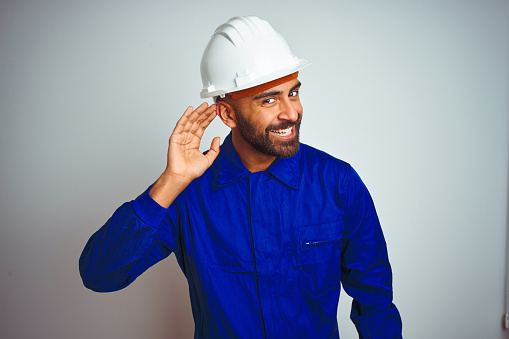Industrial Deafness Claims Scotland
Get free, no obligation advice from injury specialists
OR CALL FREE ON:
0141 319 5639
We take your data seriously. See our privacy policy & terms.
By submitting this form you agree to be contacted by our partners.
Industrial Deafness Claims Scotland | No Win No Fee

Industrial Deafness Compensation Claims Scotland
Industrial Deafness Claims Scotland
If you have been affected by industry noise hearing loss leading to deafness, you can file for industrial deafness compensation claims. A noisy environment in various industries causes industrial deafness. The deafness typically starts appearing gradually.
With time, the deafness increases, making it difficult to hear others. Industrial deafness tends to worsen with age, and an external hearing device is required in daily life. According to a survey, the extraction, mining, construction, metal, manufacturing, and energy industries have the highest rates of industrial deafness.
Eligibility check: Industrial deafness claim?
The industrial deafness claim should be filed within three years of the first diagnosis. For your industrial deafness claim, you also have to make sure that someone else is responsible. Consulting an expert personal injury lawyer can be very helpful in deciding your industrial deafness claims.
Who is at risk of Industrial Deafness?
Noise-induced hearing loss occurs most commonly in people working in environments where the noise levels are over 81dBA. Exposure to this much high-level noise over time can lead to permanent hearing loss or reduced hearing capability. The effects are usually irreversible.
Workers working in Mining, Engineering, Construction, Car manufacturing, Shipyards, Road drilling, etc., are higher in hearing loss impairments.
Demonstrating the cause: Is my Employer liable
Using insufficient or inadequate equipment is a common cause of industrial deafness among most industry workers. A report by a medical expert can help your personal determine whether that particular industrial environment or the specific job role was the cause. For example, a highway engineer working on a mountain tunnel project may be subjected to repeated blasts in the mountain or underground.
As per the Health and Safety at Work Act 1974, all employers have a duty of care to protect staff from industrial deafness at the workplace. The employer has to ensure preventive measures to avoid industrial deafness as per the Control of Noise at Work Regulations 2005.
These regulations are made to protect employees from industrial deafness by avoiding high and continuous noise at work. Employers need to carry out an extensive risk assessment of the noise levels in the industry and comply with the regulations. Install sound barriers and sound absorbent materials. The industry units may have to opt for quieter machinery.
In case the noise can’t be avoided in particular job roles, then the employer must make sure that the exposure time is reduced significantly. Preventive measures like earplugs must be used to protect workers from industrial deafness.
If an employer ignores the risks or implements them, inappropriate safety measures can be deemed negligent and liable for industrial deafness compensation claims.
Compensation amount for Industrial Deafness
The compensation amount will depend on the extent of your injury and any financial losses or costs you have incurred. While filing the claim, your personal injury lawyer will consider how the deafness has impacted your life. Your solicitor will consider all the factors and help calculate the correct compensation claim to make for you.
How can we help you?
We offer No Win No fee agreement to our clients. it means you need to pay our fee only after you win your compensation. We charge from the compensation amount you receive. Hence, there is absolutely no financial risk in filing industrial deafness claim.
Our personal injury solicitor will handle your industrial deafness claim right from the beginning until the financial settlement. The Personal injury lawyer will also help you get interim payments before the actual settlement happens while you are unable to work.
He will also help you get advice on personal injury trusts, tax, and welfare benefits. He will also assist in Coordinating with rehabilitation providers and therapists. Our industrial deafness claim experts know how to negotiate and get you the maximum possible compensation for your claims.

